- JST Home
- /
- Strategic Basic Research Programs
- /
 CREST
CREST- /
- Research Director/
- Cell Control/
- [yuCell] Year Started : 2023
[yuCell] Year Started : 2023
Hideaki Kato
Development of magnetogenetics technologies
Research Director
Hideaki Kato
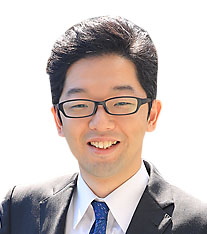
Professor
Research Center for Advanced Science and Technology
The University of Tokyo
Collaborator
| Teruhiro Okuyama | Associate Professor Institute for Quantitative Biosciences The University of Tokyo |
| Susumu Yoshizawa | Associate Professor Graduate School of Frontier Sciences The University of Tokyo |
Outline
We aim to pioneer a novel cell manipulation technique termed magnetogenetics. Our primary focus will be on analyzing the molecular mechanisms of magnetic receptors found in nature. Based on our findings, we will create magnetogenetics tools to control various cell activities. To evaluate the effectiveness of these tools, we will conduct experiments on both cultured cells and living animals.
Kotaro Kimura
Session with the worm’s brain through ultra-fast optical call & response
Research Director
Kotaro Kimura
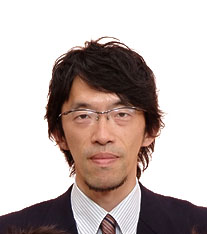
Professor
Graduate School of Science
Nagoya City University
Collaborator
| Hiromasa Oku | Professor Faculty of Informatics Gunma University |
| Yuki Tsukada | Senior Assistant Professor Department of Biosciences and Informatics Keio University |
Outline
The essence of brain function is the coordination of distributed and autonomous activities in various multiple regions, but our understanding of this remains limited. In this project, we regard the distributed and autonomous activities of the brain as a jazz session in which multiple autonomous performers cooperate to compose music, and aim to establish techniques where researchers engage with brain activity through a ‘call & response’ strategy, steering brain functions in desired directions, starting with studies on nematode C. elegans, which have simple brains.
Hirohide Saito
Construction of Functional RNA/RNP Evolution Platform and Development of Cell Regulation Technology
Research Director
Hirohide Saito
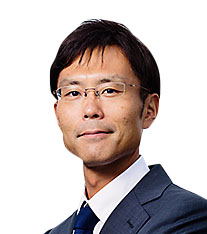
Professor
Institute for Quantitative Biosciences (IQB)
The University of Tokyo
Collaborator
| Shungo Adachi | Chief Research Institute National Cancer Center Japan Research Institute |
| Michiaki Hamada | Professor Faculty of Science and Engineering Waseda University |
| Hirohide Saito | Professor Institute for Quantitative Biosciences (IQB) The University of Tokyo/ Professor Center for iPS Cell Research and Application (CiRA) Kyoto University |
Outline
In this study, we utilize AI models, synthetic biology, and large-scale analysis techniques to discover and create RNAs and RNPs with new functions. In particular, we have developed a unique AI model called “RNA & RNP Generator” to search for and generate RNAs & RNPs that express desired functions. These findings will be applied to gene expression regulation and cellular manipulation techniques. Through this research, we aim to build an “RNA & RNP Evolution Platform” that combines experimentation and AI, and we will develop cellular control mechanisms and manipulation techniques based on RNA & RNP.
Moritoshi Sato
Opto-microorganism development for optogenetic intervention and application in vivo
Research Director
Moritoshi Sato
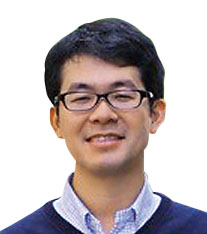
Professor
Graduate School of Arts and Sciences
The University of Tokyo
Collaborator
| Makoto Takeda | Professor Graduate School of Medicine The University of Tokyo |
| Masayuki Yazawa | Associate Professor Department of Pharmacological Sciences Icahn School of Medicine at Mount Sinai |
Outline
We will develop opto-microorganisms that can be manipulated by light and demonstrate their potential for applications such as cancer drug discovery and drug discovery for infectious diseases by performing significant functional modification of microorganisms using directed evolution and by introducing novel optical manipulation technologies.
Kumiko Tsukui
Manipulating parasites
Research Director
Kumiko Tsukui
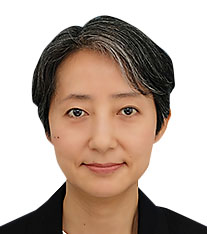
Visiting Researcher
Graduate School of Medicine
The University of Tokyo
Collaborator
| Shiroh Iwanaga | Professor Research Institute for Microbial Diseases Osaka University |
| Hirotaka Kanuka | Professor School of Medicine Jikei University |
| Haruhiko Maruyama | Professor Faculty of Medicine University of Miyazaki |
Outline
We aim to establish manipulation methods for two protozoa and three helminths, and confer useful functions along with taking advantage of their characteristics. Parasites have coevolved with their hosts and acquired ingenious strategies, which allow for completing a unique parasitic life cycle. Their diverse survival strategies are attractive from perspectives of basic and applied science, but there are still technical issues to be clarified. In this research project, to break through these issues, we attempt to develop genome editing technology in parasite species, for which manipulation techniques are still underdeveloped, which enable us to utilize the parasite’s survival strategies. We expect that our developed technologies will open new avenues in parasite biology, which will be useful for future science.
Hiroshi Nishimasu
Genome eingineering using novel DNA recombinases
Research Director
Hiroshi Nishimasu
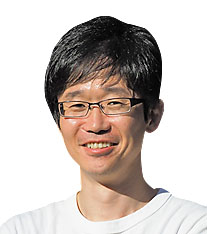
Professor
Research Center for Advanced Science and Technology
The University of Tokyo
Collaborator
| Sadao Ota | Associate Professor Research Center for Advanced Science and Technology The University of Tokyo |
| Kotaro Tsuboyama | lecturer Institute of Industrial Science The University of Tokyo |
| Hirofumi Nishizono | Lecturer Medical Research Institute Kanazawa Medical University |
Outline
In this study, we will perform genome mining, functional analysis, and cryo-EM structural analysis of various DNA recombinases to elucidate their DNA recombination mechanisms. In addition, we will attempt structure-based molecular engineering to create recombinase variants with improved functionality and develop efficient DNA knock-in technologies. Finally, we aim to establish therapeutic methods for genetic diseases caused by large-scale genome deletions.
Nozomu Yachie
DNA Event Recorder Cell
Research Director
Nozomu Yachie
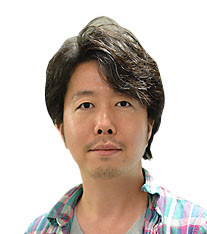
Specially Appointed Professor
Premium Research Institute for Human Metaverse Medicine
Osaka University
Collaborator
| Daichi Inoue | Professor Graduate School of Frontier Biosciences Osaka University |
| Ryosuke Kojima | Associate Professor Graduate School of Medicine The University of Tokyo |
| A. Etsuo Susaki | Professor Graduate School of Medicine Juntendo University |
| Toshiro Moroishi | Professor Faculty of Life Sciences Kumamoto University |
Outline
A significant challenge that modern biology faces is the inability to directly observe the sequence of events that occur within cellular structures. Current methods used to observe the molecular profiles of cells require the destruction of the samples at the time of observation. To tackle this challenge, we aim to establish “DNA event recording” systems, by which high-resolution molecular and cellular information from individual cells within a multicellular organism can be progressively stored on synthetic “DNA tapes.” Such a system permits the historical information of cells to be read out through high-throughput DNA sequencing. Our goal is to obtain a high-content map of the developmental cell lineage and cell differentiation trajectories throughout the entire process of mouse development.













